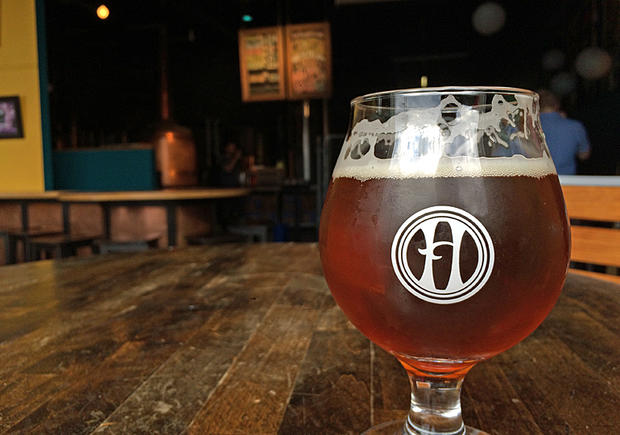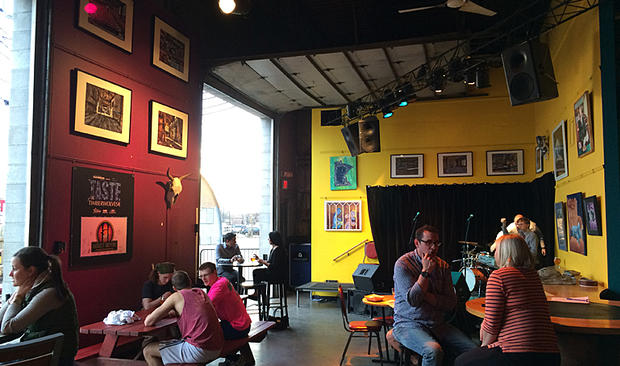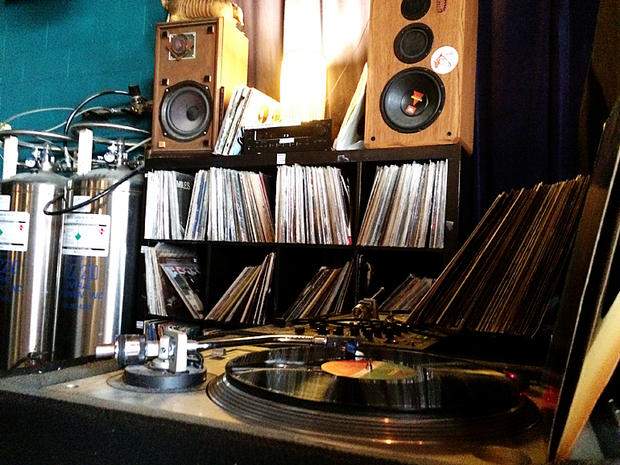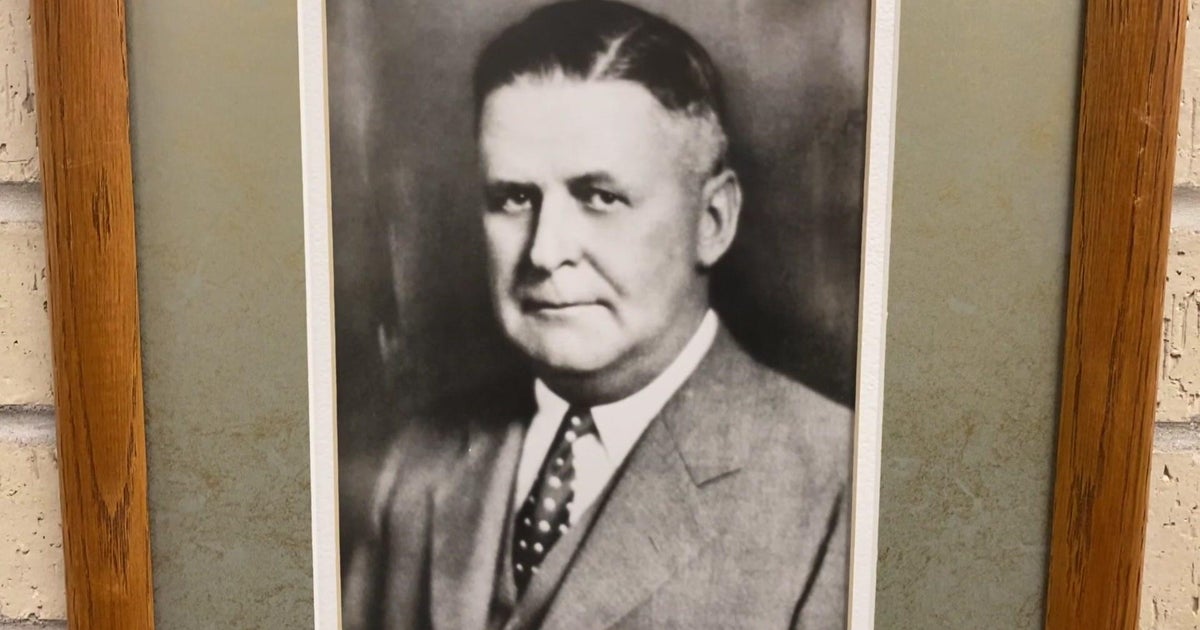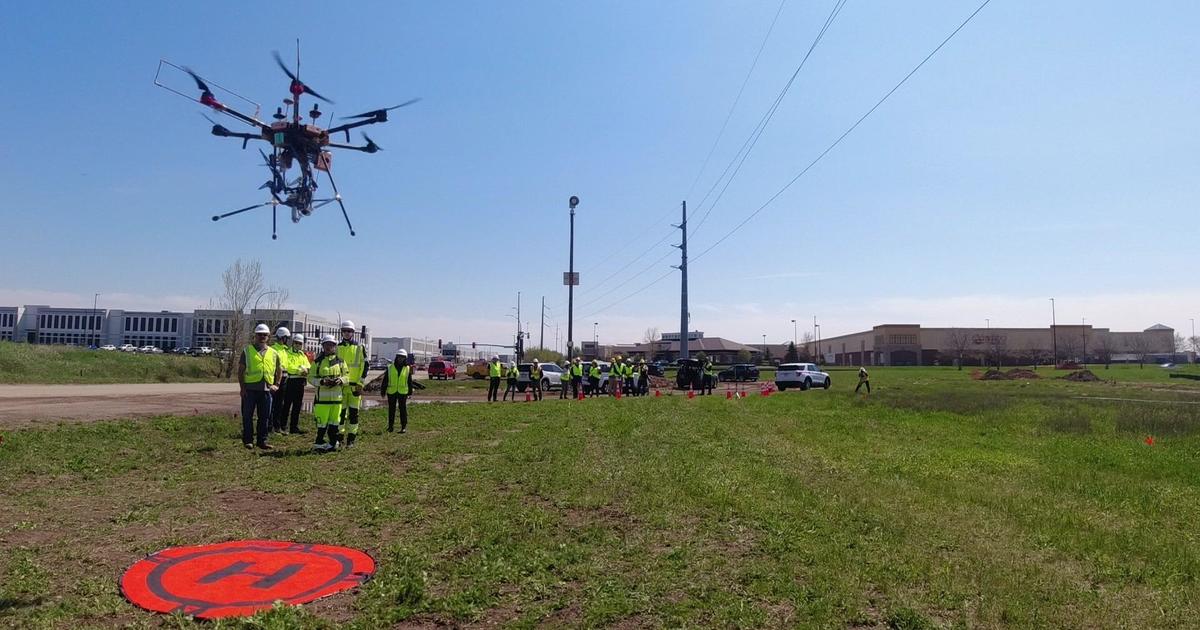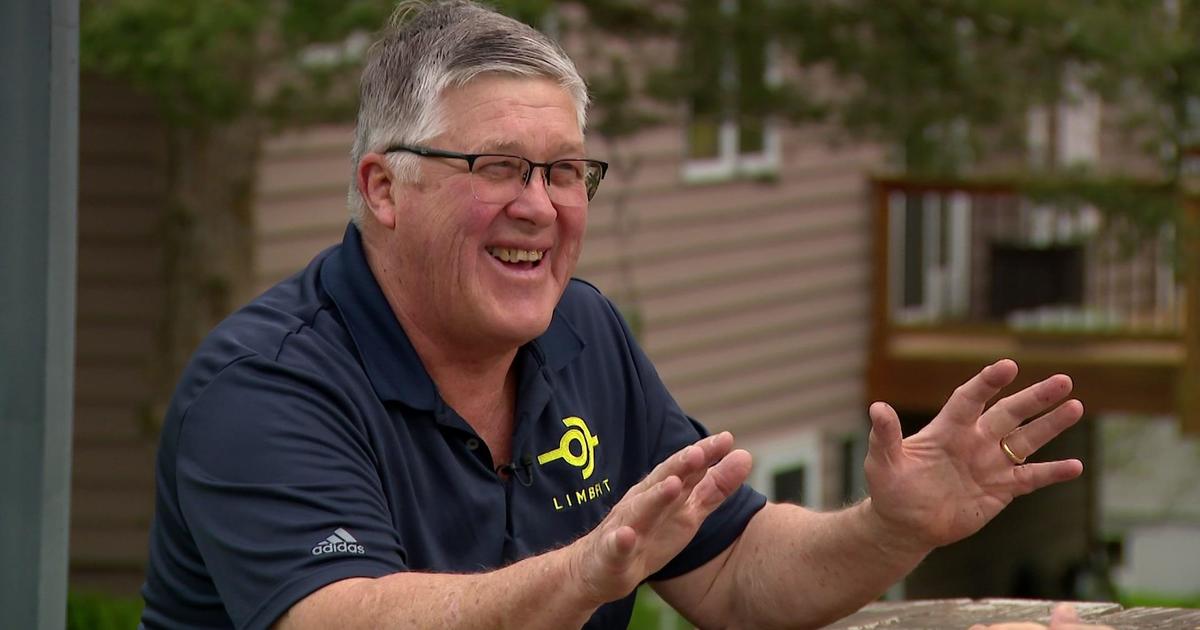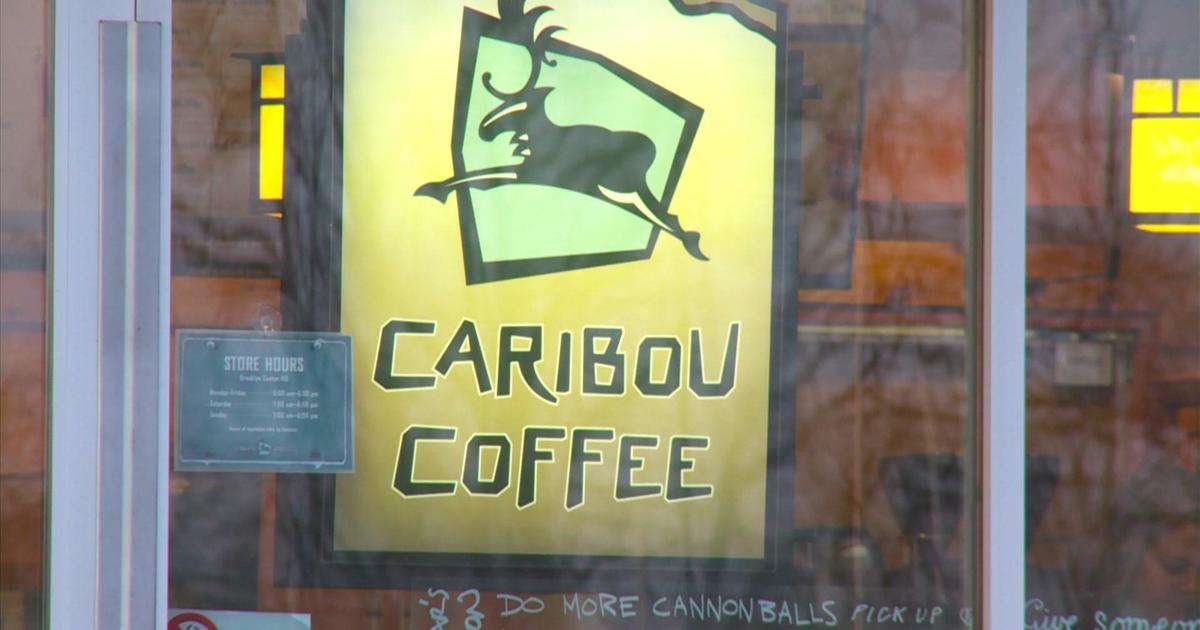Tap Talk: Harriet Brewing Company
Over the last five years, the craft brewery movement has grown exponentially in Minnesota. The Associated Press says licensing records show two-thirds of Minnesota breweries have opened just since 2010. So, we decided to help you – and your livers – keep up with the taproom trend by stopping by some of these Twin Cities brewhouses. This time, we headed to Harriet Brewing Company.
Harriet Brewing is a great example of success through sheer determination fueled by passion. Yes, that sounds dramatic, but hear me out.
When founder Jason Sowards found himself laid off in 2009, the then 20-something wasn't exactly fazed. In fact, he took the dramatic turn in his life as an opportunity.
Sowards had already established himself as an accomplished home brewer, focused on German- and European-inspired brews. He would brew out of his garage on the west side of Lake Harriet (hence the name) for neighbors, friends and the random passersby.
"I loved brewing, but I had all this extra beer lying around and couldn't consume it all myself," he said. "So, I began to bottle it and give it away, invite people over and have parties, and do anything I could to have people consume it, so it wouldn't accumulate and I could keep brewing."
So, it made sense that he'd eventually want to open his own brewery. Thankfully, as a chemical engineer by training, he knew what it took to follow his passion.
"That's what I did for a living, for my job, was design industrial processes," Sowards said. "I started putting numbers on an excel sheet, just dinging around, trying to prove to myself that it wouldn't work. The more I put it together, the more I was convinced that it would work."
However, as most find out one way or another, starting a brewing business doesn't happen as easily as one would think. Even if you know how to brew beer well and have the planning ability to understand all the necessities, most also need something very important: funding.
"In 2010, nobody wanted to give money out. If you were a start-up company, they weren't even looking at your business plan. They're just like, 'you're a startup? Sorry, can't do it.'"
Even after being denied by several banks, however, through persistence, Sowards was able to secure funding – and Harriet Brewing was born.
As the following interview touches upon, there were a great many more challenges for the business – almost cripplingly so. Yet, it always managed to stay afloat.
So, for more on that and other topics, including the upcoming 4th annual Sol Bock Revival festival, check out the interview below!
First of all… How did it all begin?
It was pretty organic. I was a chemical engineer working at the company that I currently do contract work for, and got into home brewing. I was a beer connoisseur I guess you'd say – trying all the styles and learning about the history – I was super into it. My colleague who sat in the cubicle next to me brewed a batch of beer with me and brought me to the Minnesota Home Brewers Association "Teach A Friend How To Home Brew Day" and, after that, I went out and dropped about a $1,000 and bought a system and started brewing beer, and started beer judging. And I got really into it.
Were there any major hurdles with opening the brewery/taproom?
In 2010, nobody wanted to give money out. If you were a start-up company, they weren't even looking at your business plan. They're just like, 'you're a startup? Sorry, can't do it.' After a few of these experiences I was pretty frustrated because nobody was reading my business plan! They would come and see me … we'd set up a meeting and they'd take up an hour or two of my time and then turn me down. By the questions I was asking them and the communication, I knew they had not read anything before I came into the meeting. And this happened like three or four times. I finally left the last meeting just livid and gave the bank manager a piece of my time.
So, I went and grabbed a book from CPED, Community Planning and Economic Development. They have a list of people that they've worked with. And I went down the list and calling, and asking, 'Hi, how many startup companies have you funded in the last five years?' and every single one was like 'Zero, zero, zero.' And I finally got to Venture Bank and the guy was like, 'oh, I don't know. A few? I know we've done some.' And I was like, 'oh! Can I come in? If I send you my business plan, will you read it and look at it?' He agreed, so I sent it over. And I went in and had a meeting with him, and I was financed.
At that point, I had nobody … nobody wanted to commit with me, so I put my entire life's savings into this place. Even that, even dumping in everything I still had to make compromises.
I only had 15 barrels worth of kegs, and I know it wasn't enough, but it was enough to get started.
The whole beginning was a struggle. I did a lot of the work myself, you know. It was tough and there wasn't any extra money going around. Then, you get going and you gotta take all the money that you're making and dump it right back into the brewery. I didn't really pay myself anything for the first three years.
I went from a very comfortable income to dirt poor.
What laws/etc. helped the business?
Why beer? What is it about the drink that inspires/drives you?
It's not just beer, I love wine, too … but I love food … and I love beer as it pairs with food, or how it sparks those neurons. I think I gravitated towards beer once I discovered it more than wine when brewing. I can produce beer quicker than wine and have more control over the final flavor, so it feels like it's me making it taste this way -- not God making it taste this way -- if that makes any sense.
Wine making is amazing, but you need a ton of money and a ton of time …
So, beer, it's fun, it's quick and you got a lot more different ingredients to play with.
What should startups avoid when they … start up?
Not having a team together before they start. Yeah. Because once everything starts up, it's madness. You don't have time to do anything, you're just trying to brew enough beer to keep up, and s---t's breaking down and you're fixing it, and taxes gotta get paid. You're like, 'taxes, what? I gotta brew beer.' And you gotta keep up books. All these things are happening and I had no one set to do it.
Sowards also learned a big lesson on solar panels and electric boilers. Listen to it below.
So what kept you afloat during the hard times?
We got a good product. We got a good vibe going on here. We got a lot of cool people that work around us and participate in what we do. We do a lot of music festivals and a lot of fun events that are not really contrived. They are an extension of what I love and the people who participate in Harriet Brewing around me love. We make it happen.
What "philosophy" do you have behind your brews? What kind of beer did you want to brew?
Well, my love of wine is what kind of drove my love for Belgian ales. I found as a beer drinker, I've tried everything, but always gravitated toward the Belgian styles just for their complexity, their fruity character and their spiciness.
What's the beer you're most proud of – your flagship? What beers do you suggest for the novice & the pro?
The flagship is West Side. I guess I'm pretty proud of it -- I'm not an IPA guy!
All my friends were like, 'just make an IPA, man, you got to.' And I said, 'no, I want to be a Belgian- and German-focused brewery. I wanted to do all European styles. And so it had to be a Belgian IPA. It's gotta have a twist to it.
Belgians believe in a balanced beer, and over-hopped things are just not part of their style. So, a Belgian IPA would be less hoppy than an American IPA.
So, the trick with the West Side was to try to find a yeast that would express itself in an spicy, earthy, fruity way and find a hop profile that would marry and compliment that, and not overwhelm it, but go together with it.
Most of my beer recipes didn't take too long to create, but the West Side was a totally different animal …
What sets you guys apart? I see you guys do a lot with local music.
In the beginning, we stood out a bunch! But now these breweries opening up, they have a live music element to their stuff, too. So, maybe because we were the first ones? (laughs)
Also, we successfully execute many outdoor festivals every year. We're right in south Minneapolis and there's not a whole lot of open space where one can throw a festival like we do, so our location makes us unique. That, and the Belgian beers.
Future goals/ambitions?
We're going through a rebranding process right now. With all the new breweries opening up and everything, we thought, 'well, we can't be new again, but we can certainly reinvent our look and our feel.' We'll see if that generates excitement. That's one of the things on our list.
But mainly it exists around organization and continuing to refine what we do. Making our space more and more comfortable for our customers.
We're focusing pretty heavily on wholesale right now. Really want to get our wholesale up. Bottles are coming out this year, too, so that'll be a big step.
We're working on it so that by the end of the summer, people can go to a liquor store and buy bottles of Harriet Brewing beer.
Lastly, tell me about the Sol Bock Revival this Saturday!
So, we do 12 expansion events a year, which is where we serve beer outside our facility. There are a few notable ones.
Our two main events are German-focused. So, one celebrates the coming of spring and the other celebrates fall … Maifest and Oktoberfest. Our Maifest celebration is called the Sol Bock Revival. I brew a Maibock called SolBock, and we have a huge outdoor festival. We release the Solbock during the festival. We'll pull an extension, so people can hang out and have a good time in the parking lot, multiple food trucks, different kinds of art vendors and different booths set up for people to do their thing. Mainly, it's just eating good food, enjoying the Maibock and all the other beers, and listening to good music.
The set list this year: we start out with a little gypsy jazz with the Mill City Hot Club, and then it goes to Acoustic Roots, which is kind of like a soul acoustic folk root thing, then it's the Saint Dominic Trio, which is a little bit of alt country. Then, Tommy Bent's band, which is a in-your-face rock-and-roll. It ends with Crankshaft and the Gear Grinders. So, a good day of music!
